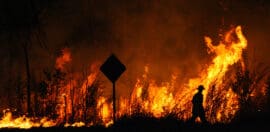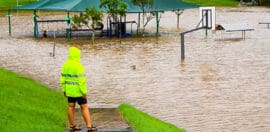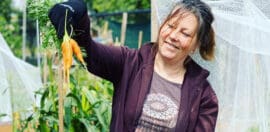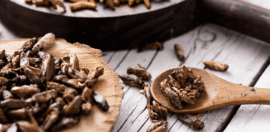Philanthropists and scientists join forces on biodiversity

9 December 2022 at 4:19 pm
The new Biodiversity Council will centre Indigenous knowledge and foster public recognition of Australia’s biodiversity crisis.
Big philanthropy is uniting with experts from 11 Australian universities in a new think tank formed to advocate for Australia’s biodiversity.
The Biodiversity Council, incubated at the University of Melbourne, will foster public, policy and industry recognition of the biodiversity crisis, the importance of biodiversity for wellbeing and prosperity, and positive opportunities and solutions to address these challenges.
It will include Indigenous knowledge holders too, and is backed by the Ian Potter Foundation. Other grantees are Angela Whitbread, the Coniston Charitable Trust, Isaacson Davis Foundation, the Ross Trust, the Rendere Trust and Trawalla Foundation.
The 11 founding universities are Australian National University, Charles Darwin University, Deakin University, Macquarie University, Monash University, the University of Adelaide, the University of Canberra, the University of Melbourne, the University of Sydney, the University of Queensland and the University of Western Australia.
A star-studded launch of the new @Biodivcouncil at @UniMelb tonight! Very exciting alliances between First Nations, academia, business, community & governments coming together to recover our continent’s unique #biodiversity. pic.twitter.com/HsVE8S1Kxf
— RSV (@RoyalSocietyVic) December 7, 2022
The formation of the council follows a turbulent year for Australia’s environment. The State of the Environment report described the environment as “poor and deteriorating”, with factors like climate change, habitat loss, invasive species, pollution and resource extraction placing pressure on species and ecosystems.
The report also highlighted a rise in the number of threatened species in Australia of eight per cent over the past five years.
Minister for Environment and Water, Tanya Plibersek, launched the Biodiversity Council with University of Melbourne vice-chancellor Professor Duncan Maskell.
See more: Government seeking collaboration to stop environmental decline
“Australia is one of the world’s 17 ‘megadiverse’ countries. We’re determined to stay that way and protect our unique plants and animals. One of my first decisions as Minister was to declare a goal of zero extinctions. But to achieve that government needs to work hand in hand with scientists, advocates, First Nations and the community,” Plibersek said.
Incoming executive director of the Biodiversity Council, Ilsa Colson said there is growing momentum and investment to find solutions to the biodiversity crisis.
“Biodiversity loss and climate change are the two existential challenges of our time, yet biodiversity loss receives much less attention than the climate crisis. The council will seek to change this,” she said.
Inaugural chief councillor, Yuin man and conservation and research manager at the Conservation Ecology Centre Dr Jack Pascoe, said the State of the Environment report revealed the importance of centering Indigenous knowledge in Australia’s biodiversity fight.
“The recently-released State of the Environment report underscores a growing recognition that Australia’s biodiversity is declining dangerously fast, with significant implications for our economy, food systems, health, wellbeing and culture,” he said.
“It also highlights the importance of Indigenous knowledge in addressing these challenges. The Biodiversity Council will provide a platform to ensure First Nations voices are heard in advocating for healthy country.”
“Much-needed attention”
Nature program manager at the Australian Conservation Foundation, Basha Stasak, said the Biodiversity Council will bring “much-needed attention to the plight of Australia’s wildlife, plants and ecosystems”.
“Most Australians are unaware that we are in an extinction crisis,” she explained.
“The council will play an important role in raising awareness among the community and decision-makers about the scale of the crisis and the solutions.”
She added it’s time for the federal government to invest “far more” into threatened species recovery and restoring ecosystems.
“Scientists estimate $1.69 billion per year is needed to improve the status of all of Australia’s threatened species in the coming years. Current spending falls well short of this figure.”







